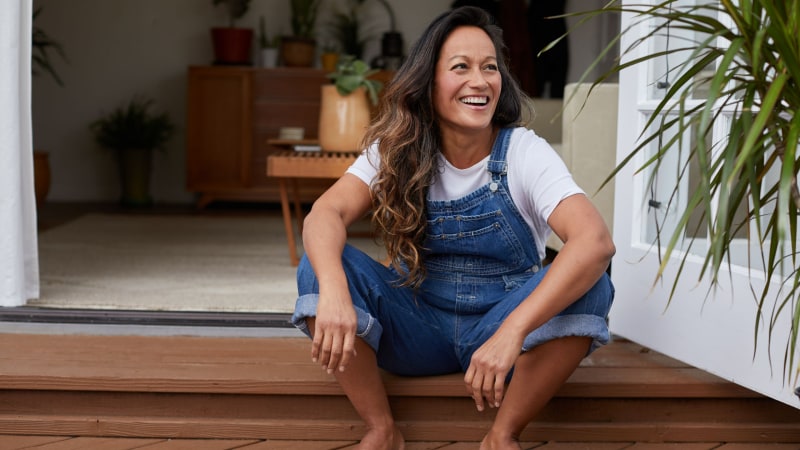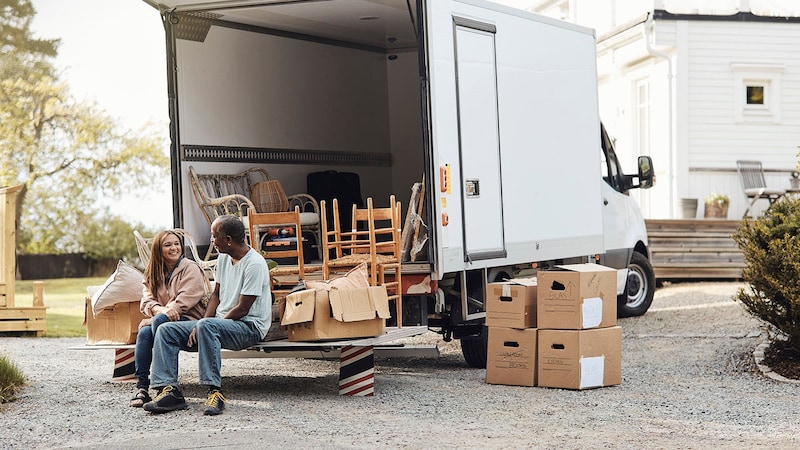Buying a home as a single person

Whether you’re buying a house for your family or on the lookout for a home as a single person, homebuying is for everyone—even if the process might differ. Buying a house by yourself may take some added forethought and planning, ranging from the financing requirements to the homes you might consider. Let’s look at buying a house as a single person and things you might want to keep in mind for a smoother experience.
Assessing your financial situation
If you’re single and wondering how to afford a house by yourself, a few questions typically come to mind—chief among them, “Can a single person buy a house?” Yes, a single person can buy a house, and it usually starts with a few steps to understand your financial situation.
- Understanding your income: Your income determines how much house you can afford. It’s not just about qualifying for a loan, but ensuring that, once the monthly payments kick in, you can maintain your expected lifestyle.
- Checking your credit report: Credit scores play a major role in the homebuying process, influencing the interest rates and loan terms you’re offered. It’s not uncommon for potential buyers to take steps to improve their credit scores before diving into the homebuying process.
- Examining your savings: Savings aren’t just for down payments and closing costs. A strong savings cushion can provide a possible safety net for unexpected expenses that might arise when buying a home, such as emergency repairs.
Once you’ve assessed these three pillars — income, credit and savings — it’s often helpful to start crafting a realistic budget to account for all current expenses, potential mortgage payments and the costs of home maintenance.
Choosing the right type of home
When looking for a house as a single person, there’s no one-size-fits-all option. The best choice will vary between individuals, depending on a variety of factors. That said, here are a few general options you may want to consider:
- Single-family homes: These properties often provide more space, both inside and out. This could be a great fit if you have pets, love to entertain, might want to start a family someday or simply enjoy the prospect of having your own yard.
- Condominiums or townhouses: These homes typically require less maintenance than a single-family home, as tasks like landscaping and exterior repairs are often handled by a homeowner's association (HOA). If you're a busy professional or simply prefer not to manage these tasks, this could be a good fit.
- Co-ops: Particularly common in urban areas, co-ops offer a unique blend of community and privacy. They might be worth considering if you're comfortable with the co-op board's potential involvement in certain decisions, such as approving new residents.
- Studio or one-bedroom apartments: These smaller options might be a good fit for a single person who values simplicity, affordability and a low-maintenance lifestyle. These homes may provide easy access to city amenities and are generally easier to maintain as a single person.
Securing a mortgage
Buying a house by yourself does come with a few extra considerations, especially when securing a mortgage. The mortgage process typically begins by exploring your financing options. Mortgages vary, from conventional mortgages to government-backed loans, each with its own requirements and potential benefits. Some may cater to first-time homebuyers. When buying a house by yourself without a secondary applicant to supplement income or balance credit, your preapproval will be based on your financial profile alone.
Thinking long-term
Remember that your choice may not solely be about finding a house for a single person; it might be wise to think of it as investing in a home that aligns with your current and future plans. Here are a few considerations to weigh when buying a house alone:
- Relationship status: If you plan to remain single, a smaller home might suit your needs just fine. However, if a partner or family are a part of your future plans, it may be worthwhile to consider a home with room to grow.
- Family considerations: Thinking about whether you plan to have children or take on additional family members may help frame your choice of home. When it comes to children, for instance, finding a location in a safe neighborhood with good schools becomes a more pressing concern.
- Career plans: Even your choice of job may dictate your home type. For example, if you anticipate working remotely, you may need a dedicated workspace. If you’re going into an office, proximity to the workplace can make for a shorter commute, which may be something to think about. If relocation is possible, considering the home’s potential resale value and market demand may be worthwhile considerations, as well.
- Retirement: It may be helpful to start thinking about how a property might suit your needs as you age. A home that’s already a good fit for your retirement may help save future costs of living.
Building a strong support network
Buying a house by yourself is a significant endeavor, but you need not navigate the process alone. Building a network of seasoned professionals can help you access valuable guidance every step of the way.
- Real estate agents: Real estate agents are often a crucial part of the homebuying journey. They understand the local market, can help find homes within your budget that meet your needs and negotiate on your behalf.
- Attorneys: Depending on your state’s requirements and your personal comfort level, a real estate attorney could potentially help you review contracts and handle any complex legal matters that may arise.
- Home inspectors: These professionals conduct thorough inspections of prospective housing, helping to identify possible structural or systemic issues that could potentially lead to costly repairs down the line.
- Financial advisors: Financial advisors could potentially provide insights into your financial situation, helping you understand how buying a home might fit into your broader financial goals.
In summary
Buying a home as a single person can be a potentially rewarding journey, providing opportunities to make independent choices and fully customize your homebuying experience. Understanding your finances, picking the right property, navigating the mortgage process and considering your long-term plans will likely be key steps in this process. Moreover, working with professionals like estate agents and financial advisors may help steer your decision-making, so you can confidently move toward homeownership in any phase of life.



